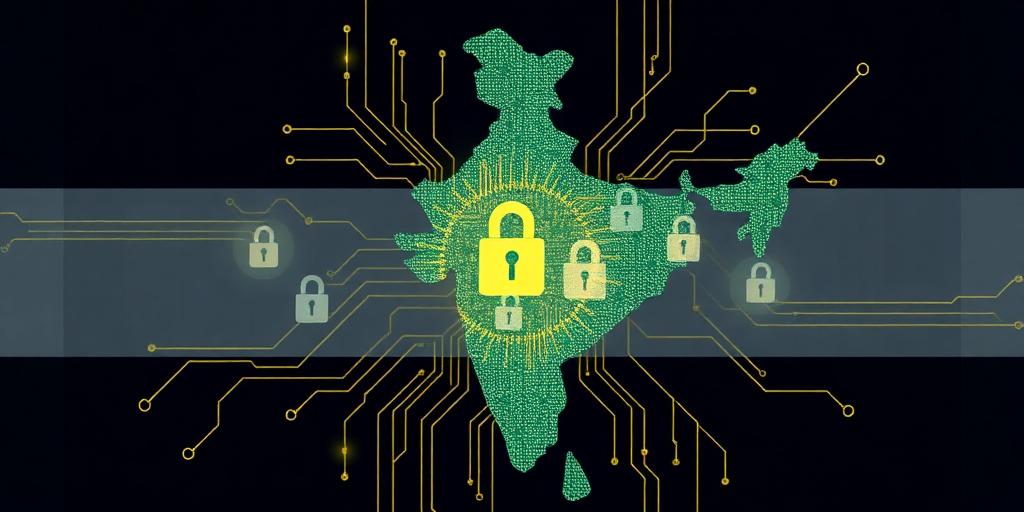India's Digital Personal Data Protection Act (DPDPA) marks a pivotal moment in the nation's journey towards robust digital governance and individual privacy. Enacted with the aim of safeguarding the digital personal data of Indian citizens, the DPDPA introduces a comprehensive legal framework that significantly impacts how entities collect, process, and store personal data. This legislation underscores India's commitment to aligning with global data protection standards while addressing the unique complexities of its vast digital landscape. Understanding the nuances of this act is paramount for all stakeholders, from multinational corporations to individual data principals.
The Foundational Pillars of DPDPA
The DPDPA is built upon several core principles designed to establish a transparent and accountable data processing ecosystem. These include:
- Consent-Based Processing: At its heart, the DPDPA mandates that the processing of personal data must be based on explicit, informed, and unambiguous consent from the data principal. This consent can be withdrawn at any time, requiring data fiduciaries to cease processing.
- Purpose Limitation: Data can only be processed for the specific purpose for which consent was obtained. Any subsequent use requires fresh consent.
- Data Minimization: Data fiduciaries are obligated to collect and process only the minimum amount of personal data necessary to fulfill the stated purpose.
- Accuracy and Completeness: The act emphasizes the importance of ensuring that personal data is accurate and complete.
- Storage Limitation: Personal data must not be retained indefinitely. It should be deleted or anonymized once the purpose for which it was collected has been served.
- Accountability: Data fiduciaries are held responsible for complying with the DPDPA and must be able to demonstrate this compliance.
These foundational pillars establish a clear framework for responsible data handling, addressing key provisions of India's DPDPA and setting new benchmarks for data stewardship.
Rights of the Data Principal Under DPDPA
The DPDPA empowers individuals, referred to as 'data principals,' with a comprehensive set of rights over their personal data. These rights are crucial for ensuring individual autonomy and control in the digital realm:
- Right to Access Information: Data principals have the right to obtain information about their personal data being processed, including the identity of the data fiduciary and the purpose of processing.
- Right to Correction and Erasure: Individuals can request the correction of inaccurate or incomplete data, as well as the erasure of data that is no longer necessary for the purpose it was collected.
- Right to Grievance Redressal: The act provides mechanisms for data principals to lodge grievances against data fiduciaries regarding data protection violations.
- Right to Nominate: In the event of death or incapacity, data principals can nominate another individual to exercise their rights.
These provisions significantly enhance individual privacy and control, reflecting a global trend towards stronger data principal rights under DPDPA.
Obligations of Data Fiduciaries: Navigating DPDPA Compliance
Entities that determine the purpose and means of processing personal data, termed 'data fiduciaries,' bear significant responsibilities under the DPDPA. Navigating DPDPA compliance for businesses requires a proactive and systematic approach.
- Implementing Reasonable Security Safeguards: Data fiduciaries must deploy appropriate technical and organizational measures to prevent data breaches and unauthorized access.
- Data Protection Impact Assessments (DPIAs): For certain high-risk processing activities, conducting DPIAs may become a de facto requirement to assess and mitigate privacy risks.
- Breach Notification: In the event of a personal data breach, fiduciaries are mandated to notify the Data Protection Board of India and affected data principals.
- Appointing a Data Protection Officer (DPO): For significant data fiduciaries, the appointment of a DPO may be necessary to oversee compliance.
- Adherence to Cross-Border Data Transfer Rules: The DPDPA permits cross-border data transfers to notified countries, provided they meet specific criteria.
These obligations ensure that organizations handling personal data are held accountable, contributing to the overall impact of India's data protection law.
Enforcement and Penalties
The DPDPA establishes the Data Protection Board of India as the primary enforcement authority. This independent body is tasked with inquiring into data breaches, imposing penalties, and ensuring overall compliance. Non-compliance with the DPDPA can result in substantial monetary penalties, reaching up to INR 250 crore (approximately USD 30 million) for significant breaches, underscoring the serious implications of violating DPDPA regulations.
The Broader Impact of DPDPA
Beyond its immediate legal implications, the DPDPA is poised to reshape India's digital economy. It fosters greater trust in digital services, encourages responsible innovation, and positions India as a significant player in the global data governance landscape. While initial compliance challenges for businesses are inevitable, the long-term benefits of a secure and privacy-respecting digital environment are substantial. As organizations refine their data handling practices, the DPDPA will serve as a catalyst for a more secure and privacy-conscious digital future for India.









